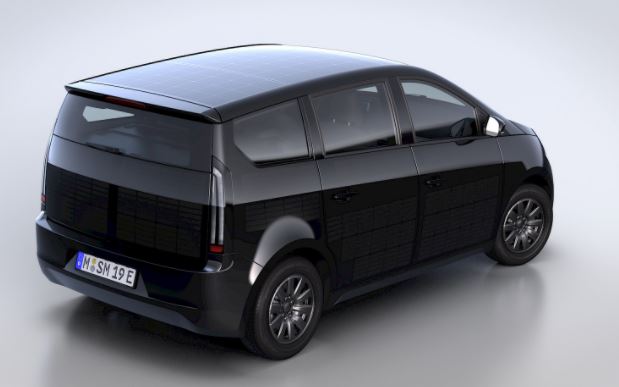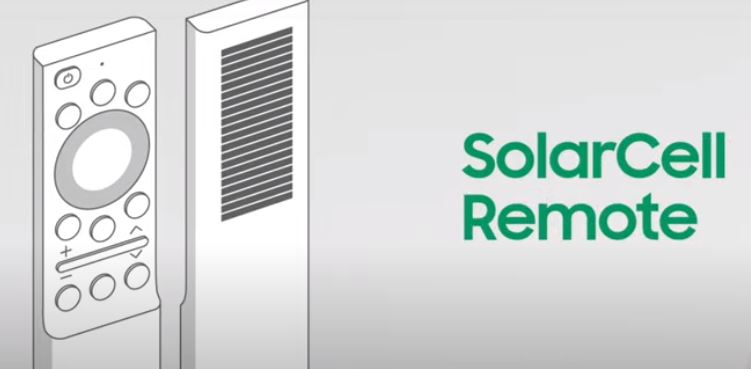

Between Samsung’s solar powered remote (made from recycled plastic) to Sono Motors Sion EV that will use solar to power itself, the two solar powered initiatives grabbed the headlines at the CES 2021 show. The show, which has gone the virtual way this year due to the pandemic, is considered a bell weather for the future of consumer electronics.
The Samsung Initiative underlines just how improvements in solar cell technology will keep impacting more and more everyday use cases as we go along. Thin film solar in this case will enable much more flexible use of solar, with solar films being virtually pasted on to generate power. In this case, using internal light and USB charging also. In an era of intense use of remote, thanks to the explosion in choice for the average TV viewer, the new move will definitely help make an impact, by saving you the expense of buying those AAA batteries regularly. Making an even bigger impact will be the use of recycled plastic, polyethylene teraphthalate in this case, the same plastic that goes into those billions of plastic water bottles.


Samsung is not just stopping there. It has also taken aim at another key area of wastage, the packaging for its larger consumer durables. It has joined designers to ensure that the cardboard boxes for its large TV’s can be upcycled as a possible bookshelves, or even a rocking horse, after unpacking. Extending the life, and use of packaging by even six months in this fashion is certainly a start. Samsung claims that this sustainable solution can upcycle up to 200,000 tons of corrugated boxes each year. Further, by minimizing text and graphic imagery on the Eco-packaging, the oil-based ink from color printing that’s traditionally used on TV boxes is eliminated, helping to further reduce waste.
The second big Solar move is from Sono Motors, for its EV Sion. The company is showcasing a prototype of an EV that will use solar power too to charge itself. With 248 solar cells seamlessly integrated into the body, the Sion can charge its battery during the day through the power of the sun. In Germany, for example, up to 34 kilometers of additional range per day can be generated purely by solar energy. The company claims that its innovative manufacturing process enables the seamless integration of solar cells into the body of the Sion or other surfaces. In combination with the Solar Integration, they are creating an innovative charging solution. This enables the Sion to generate an additional range of up to 5,800 kilometers per year – using only solar energy. No emissions, and free.
1. The mandate for blending Compressed Biogas (CBG) with natural gas has come into effect…
Andhra Pradesh is striving towards greening its energy sector with quite some speed. In a…
With an objective to bolster India’s green energy goals, a Tripartite Agreement has been signed…
The Union MNRE Minister Pralhad Joshi launched the Green Hydrogen Certification Scheme of India (GHCI)…
India’s energy conglomerate Bharat Petroleum Corporation Limited (BPCL) has commissioned a 5MW green hydrogen plant…
In a historical development, the European Space Agency (ESA) has successfully launched its pioneering ‘Biomass’…